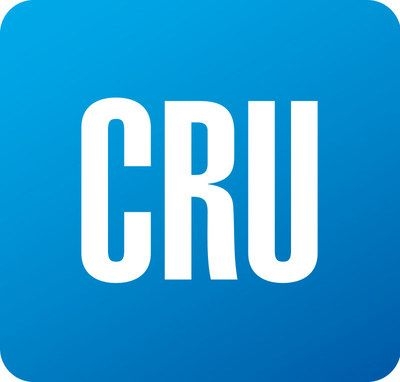Overseas

July 16, 2020
CRU: China Continues to Buck the Trend for Sheet
Written by George Pearson
By CRU Prices Analyst George Pearson, from CRU’s Steel Sheet Products Monitor
The U.S. Midwest market has continued to record lower weekly sheet prices. Our assessment of HR coil is now down $23 /s.ton since the July 1 assessment and market participants expect further price declines to emerge for all sheet products over the near term. While demand has improved from 2020 Q2, it remains well below year-ago levels. At service centers, sheet inventory is low in absolute terms, but when compared with current demand levels, it is high. Finally, scrap costs have started to fall back and further declines are possible.
Buying activity on the U.S. West Coast was muted this week due to concerns over demand. Companies are worried that as cases of Covid-19 continue to increase, consumer spending will be lower, leading to a decrease in future orders. Many buyers are limiting their purchases to fulfilling contracts and immediate needs only in an attempt to preserve cash flow. Long lead times for import offers are making those same offers unattractive to buyers, and most feel there is too much risk involved in buying imported material.
Europe
In Europe, HR coil prices have stopped falling, but no strong rebound is expected at this point. After four consecutive weeks at €410 /t, German HR coil has increased by €1 /t w/w and Italian HR coil has increased by €3 /t from its bottom of €377 /t three weeks ago. Other product prices were mixed, with Italian CR coil falling by €3 /t to €461 /t, which could be evidence of further destocking for this product. We expect the overall price trend to follow the trajectory of HR coil, stabilizing with the potential to gradually increase. Tata Steel UK announced a £50 /t increase for its domestic sales on July 14 citing unsustainable margins, which will be a similar case for several producers in Europe. One limiting factor for higher prices in the last week was local media in France reporting that ArcelorMittal Dunkirk will restart production at BF3 on Aug. 16. ArcelorMittal has operated BF4 throughout the lockdown and idled the remaining two BFs. BF3 is the slightly larger of the other idled furnace with 1.9 Mt/yr capacity. This should result in an overall increase in hot metal production for ArcelorMittal in Europe. A mid-August start date would translate into saleable HR coil in mid-September.
China
Prices in the Chinese domestic sheet market rose by RMB30-80 /t over last week. Market participants’ confidence over firm underlying sheet demand, especially for CR and coated sheets, has resulted in active purchases for these products, even with higher prices w/w. Expectations of higher demand and loosening credit also led to sharp increases for HR coil and rebar futures prices this week. Transactions have decreased at currently high price levels, but sellers are reluctant to lower prices. Some argue that sheet inventories for products such as HR coil have started to increase for a third consecutive week, which means that end-use demand is weakening. But given the fact that current stock levels are still lower than a month ago, stockists are not panicking. Lower weekly output due to air quality-driven production cuts in Tangshan as well as Baowu’s RMB100 /t higher price guideline for August shipments, have given some stockists’ further hope for price increases in the short-term. We expect tighter supply, primarily due to cutbacks in Tangshan, to keep Chinese sheet prices elevated for longer than previously expected. However, we do not see this strong demand as sustainable beyond late-July to early-August.
Asia
Import prices in Far East Asia increased last week because of strong buying activity from China. In contrast, buying in South East Asia was very slow.
For HR coil SAE1006, position cargoes of Indian material were offered at $445 /t, CFR Vietnam for August shipment, while new offers from mills increased to $455-460 /t, CFR Vietnam. Indian steel mills were selling large volumes to China at $450-455 /t, CFR China last week. However, buying indications from Vietnam were only $440-445 /t, CFR Vietnam. Japanese material was being negotiated at $445-450 /t, CFR Vietnam and Turkish material was offered at $458 /t, CFR Vietnam. Offers for Chinese material increased sharply and became uncompetitive at $480-490 /t, CFR Vietnam.
For HR coil/sheet SS400, traders offered their position at $435-440 /t, CFR Vietnam, while offers from Indian mills were at $450 /t.
Market participants believe that if prices stay at this level, buying activity in Vietnam should pick up within the next two weeks.
CRU assessed HR coil prices at $445 /t, CFR Far East Asia, a $10 /t increase w/w. CR coil prices were assessed at $515 /t, CFR Far East Asia, a $10 /t rise w/w, while HDG prices were assessed at $555 /t, CFR Far East Asia, up $5 /t w/w.

Request more information about this topic.
Learn more about CRU’s services at www.crugroup.com





